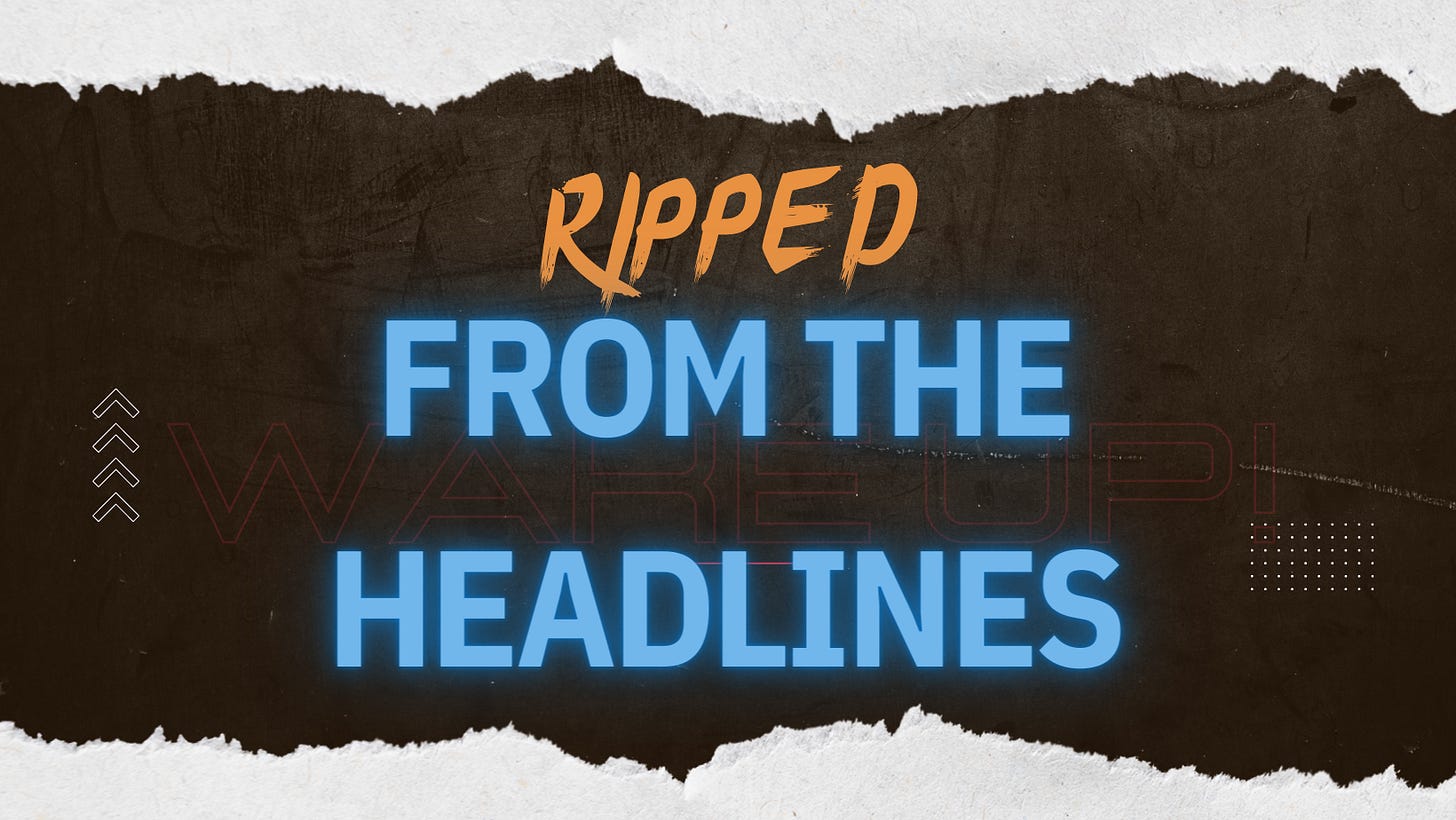BANKS SUE THE FED? Ripped From The Headlines, December 27, 2024
Why Are The Biggest US Banks Planning To Sue The Federal Reserve? Open This To Find Out Why - Read, Share, & Subscribe - SherlocExposes.com
Back What You Believe In, Support Watchmen Action, a 501c3 non-profit
Click Here to read the full article.
In a brazen bid to dismantle accountability, America’s largest banks are suing the Federal Reserve over its annual stress tests.
These tests, instituted in the aftermath of the 2008 financial meltdown, serve as a vital safeguard against the recklessness these financial institutions have historically displayed. By challenging the tests, the banks reveal not a commitment to better regulation, but a desire to escape scrutiny that has historically exposed their failings.
What Are They Really Fighting Against?
The banks argue the stress tests are “overly opaque” and impose “excessive capital requirements” that limit their ability to lend.
This claim deliberately mischaracterizes the purpose of the tests:
“The banks argue that the tests are overly stringent and don’t adequately reflect their current risk management strategies.”
Yet, it was precisely these so-called “risk management strategies” that plunged the global economy into chaos in 2008.
For your consideration: since the introduction of these tests, the financial system has largely avoided crises of the scale seen in the late 2000s. The tests are designed to ensure that banks maintain enough capital to absorb shocks without needing taxpayer bailouts. But by framing the tests as restrictive, the banks subtly advocate for a return to the freewheeling practices that benefit their bottom line at society’s expense.
A Question of Transparency or Exploitation?
The banks’ call for more transparency in the Federal Reserve’s models may sound reasonable on the surface, but it carries an ominous undertone.
Increased transparency could allow banks to manipulate their internal processes to “pass” the tests without addressing systemic vulnerabilities. This tactic, known as “gaming the system,” could render the tests ineffective, reducing them to little more than a public relations exercise.
“Banks feel that the tests are no longer relevant in the post-crisis world.”
This assertion is breathtakingly arrogant. The absence of a recent financial catastrophe isn’t a sign that the tests are unnecessary; it’s evidence that they work. Removing them would be like dismantling a floodgate because it hasn’t rained in years—ignoring that it has held back disaster all along.
A Track Record of Deflection
For your consideration: these same institutions resisted oversight before the 2008 crash, claiming that market forces alone could regulate their actions.
We saw the results of that hubris—millions lost homes, jobs, and savings while these banks received massive taxpayer bailouts. Now, they claim to act in the public’s interest, but history warns us to be skeptical.
Their arguments also mask an inconvenient truth: capital requirements and stress tests do not prevent lending; they prevent irresponsible lending.
“The banks argue that the tests are burdensome.” The burden, however, falls squarely on the public when banks fail to prepare for foreseeable risks.
Who Bears the Cost?
Weakening or dismantling stress tests shifts risk away from the banks and onto taxpayers.
This isn’t just about numbers on a balance sheet. It’s about trust. The stress tests provide some level of assurance that banks can weather storms without taking the rest of the economy down with them. By opposing these safeguards, banks signal that they prioritize short-term gains over long-term stability.
Know Your Foe
The lawsuit is more than a legal dispute; it’s a warning. When institutions this powerful seek to erode oversight, the consequences ripple far beyond their industry. The Federal Reserve must hold firm, resisting the banks’ efforts to weaken these critical protections.
You have every reason to be skeptical. This lawsuit is not about fairness or innovation; it’s about evading accountability.
In the end, if banks succeed in gutting these regulations, it won’t be their balance sheets that suffer—it will be ours. The lessons of 2008 are not distant memories; they are warnings etched in the economic scars of millions.
We ignore them at our peril.
James Wesley, Rawles, publisher of SurvivalBlog.com has put together a “bookshelf” list of key things you should have. CLICK HERE to access the list.
Plus a recap of the 50 things you should have handy to barter.
Share this email with everyone you know. Sign up for a free or paid subscription. Paid members will receive our in-depth solutions.
Ripped From The Headlines is your daily digest of what’s happening in the world. We help you to understand what it means, why you should care, and what you should do.
Have a tip on a story, case, or issue that needs to be covered? Email us: info@investinanswers.com. Confidentially assured.










